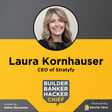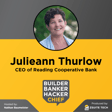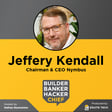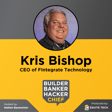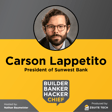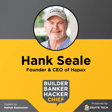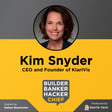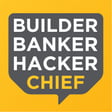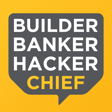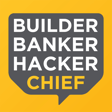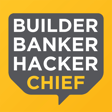
Kelly Brown – The perpetual joy of banking, protecting people, and pouring yourself out as a leader| Episode 10
Welcome to episode ten of Builder, Banker, Hacker, Chief! Joining me today is Kelly A. Brown, CEO of Ampersand Incorporated and a Senior Advisor at Patriot Financial.
On this show, I’m unpacking the stories, decisions, and influences that make people successful leaders. And when Kelly realized she wanted to start a bank, it wasn’t to make a pile of money, it was to protect other people and their money.
My name is Nathan Baumeister; I am the Co-founder and CEO of ZSuite Tech and the host of this podcast.
Kelly Brown leads from such a deep sense of purpose and passion that no matter how much success she achieved, she doesn’t lean back into a state of comfort or coasting. That’s not to say that she’s burning the candle at both ends – her focus is on relationships, not accolades. Kelly’s joy and enthusiasm have been forged through a life of trauma, difficulty, and determination to maximize every opportunity.
The most recent company she founded and leads, Ampersand Incorporated, offers treasury management and loan solutions to organizations with specialty deposit needs. They’re creating a bedrock of deposit stability in an industry that was rocked by the bank failures of early 2023.
This episode is a testament to what you can accomplish if you’re willing to stay humble, teachable, and hungry for opportunity. Kelly Brown’s life and career are paving the way for a new generation of people to enter the banking industry – making it a safer for everyone.
Resources:
Kelly’s recommendations:
Author: Robert Greene
Book: What Men Don’t Tell Women About Business (Chris Flett)
Connect:
